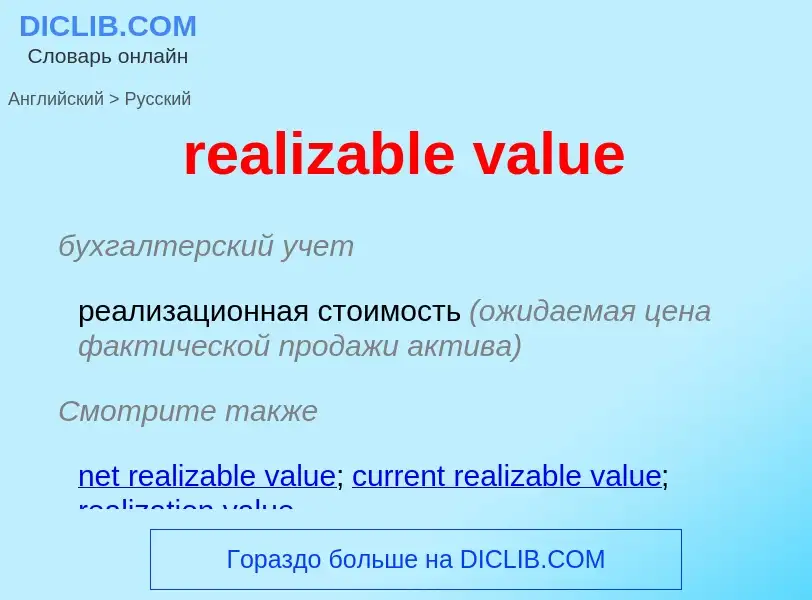Translation and analysis of words by ChatGPT artificial intelligence
On this page you can get a detailed analysis of a word or phrase, produced by the best artificial intelligence technology to date:
- how the word is used
- frequency of use
- it is used more often in oral or written speech
- word translation options
- usage examples (several phrases with translation)
- etymology
realizable value - translation to English
бухгалтерский учет
реализационная стоимость (ожидаемая цена фактической продажи актива)
Смотрите также
общая лексика
NRV чистая возможная цена реализации (разность между ожидаемой ценой реализации за вычетом предполагаемых затрат, связанных с реализацией)
бухгалтерский учет
чистая сумма дебиторской задолженности (за вычетом резерва под сомнительные долги)
сумма в неизменных ценах
Definition
Wikipedia
In mathematical logic, realizability is a collection of methods in proof theory used to study constructive proofs and extract additional information from them. Formulas from a formal theory are "realized" by objects, known as "realizers", in a way that knowledge of the realizer gives knowledge about the truth of the formula. There are many variations of realizability; exactly which class of formulas is studied and which objects are realizers differ from one variation to another.
Realizability can be seen as a formalization of the BHK interpretation of intuitionistic logic; in realizability the notion of "proof" (which is left undefined in the BHK interpretation) is replaced with a formal notion of "realizer". Most variants of realizability begin with a theorem that any statement that is provable in the formal system being studied is realizable. The realizer, however, usually gives more information about the formula than a formal proof would directly provide.
Beyond giving insight into intuitionistic provability, realizability can be applied to prove the disjunction and existence properties for intuitionistic theories and to extract programs from proofs, as in proof mining. It is also related to topos theory via the realizability topos.

